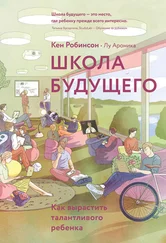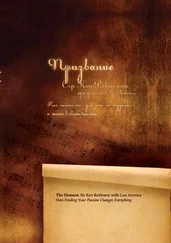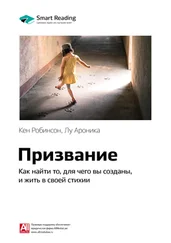Кен Робинсон - The Element
Здесь есть возможность читать онлайн «Кен Робинсон - The Element» весь текст электронной книги совершенно бесплатно (целиком полную версию без сокращений). В некоторых случаях можно слушать аудио, скачать через торрент в формате fb2 и присутствует краткое содержание. Год выпуска: 2009, ISBN: 2009, Издательство: Penguin Books Ltd, Жанр: Самосовершенствование, на английском языке. Описание произведения, (предисловие) а так же отзывы посетителей доступны на портале библиотеки ЛибКат.
- Название:The Element
- Автор:
- Издательство:Penguin Books Ltd
- Жанр:
- Год:2009
- ISBN:9780141911250
- Рейтинг книги:3 / 5. Голосов: 1
-
Избранное:Добавить в избранное
- Отзывы:
-
Ваша оценка:
- 60
- 1
- 2
- 3
- 4
- 5
The Element: краткое содержание, описание и аннотация
Предлагаем к чтению аннотацию, описание, краткое содержание или предисловие (зависит от того, что написал сам автор книги «The Element»). Если вы не нашли необходимую информацию о книге — напишите в комментариях, мы постараемся отыскать её.
The Element — читать онлайн бесплатно полную книгу (весь текст) целиком
Ниже представлен текст книги, разбитый по страницам. Система сохранения места последней прочитанной страницы, позволяет с удобством читать онлайн бесплатно книгу «The Element», без необходимости каждый раз заново искать на чём Вы остановились. Поставьте закладку, и сможете в любой момент перейти на страницу, на которой закончили чтение.
Интервал:
Закладка:
The Roles of Mentors
Mentors connect with us in a variety of ways and remain with us for varying lengths of time. Some are with us for decades in an evolving role that might start as teacher/student and ultimately evolve into close friendship. Others enter our lives at a critical moment, stay with us long enough to make a pivotal difference, and then move on. Regardless, mentors tend to serve some or all of four roles for us.
The first role is recognition. Charles Strafford served that function in my life, identifying skills that my teachers had not yet noticed. One of the fundamental tenets of the Element is the tremendous diversity of our individual talents and aptitudes. As we’ve discussed earlier, some tests are available that aim to give people a general indication of their strengths and weaknesses based on a series of standardized questions. But the real subtlety and nuances of individual aptitudes and talents are far more complex than any existing tests can detect.
Some people have general aptitudes for music, or for dance, or for science, but more often than not, their aptitudes turn out to be much more specific within a given discipline. A person may have an aptitude for a particular type of music or for specific instruments: the guitar, not the violin; the acoustic guitar, not the electric guitar. I don’t know of any test or software program that can make the kinds of subtle, personal distinctions that differentiate an interest from a potential burning passion. A mentor who has already found the Element in a particular discipline can do precisely that. Mentors recognize the spark of interest or delight and can help an individual drill down to the specific components of the discipline that match that individual’s capacity and passion.
Lou Aronica, my coauthor on this book, spent the first twenty years of his professional life working for book publishers. His first job out of college was for Bantam Books, one of New York’s publishing powerhouses. Not long after he started at the company, he noticed a wizened, gnomish man wandering the halls. The man didn’t seem to have any particular job, but everyone seemed to pay attention to him. Lou finally asked about the man and learned that he was Ian Ballantine, who’d not only founded Bantam Books and later Ballantine Books but was in fact the person who introduced the paperback book to the United States in the 1940s. Over the next couple of years, Lou passed Ballantine in the hall numerous times, nodding to him politely, and feeling a bit intimidated in the presence of a man who was such a legend in his chosen profession.
Lou got his first “real” job at Bantam around this time, a position in the editorial department, trying to piece together a science fiction and fantasy publishing program. One day not long after this, Lou was sitting at his desk when Ian Ballantine strolled in and sat down. This part was surprising enough to Lou. The next several minutes, however, left him stunned. “Ian had a distinctive way of speaking,” Lou told me. “You got the sense that every thought was a pearl, but his language was so circuitous that it seemed the pearl still had the oyster around it.” What became clear as Ballantine continued to speak, though, was that—much to Lou’s astonishment—the publishing legend wanted to take Lou under his wing. “He never actually said, ‘Hey, I’ll be your mentor.’ Ian didn’t make declarative statements like that. But he suggested he might enjoy dropping by regularly, and I made it clear that he could drop by whenever he wanted and that I’d be happy to go halfway across the world to get to him if he didn’t feel like coming to me.”
Over the next several years, Lou and Ian spent a considerable amount of time together. Ballantine taught Lou much about the history and, more importantly, the philosophy of book publishing. One of Ballantine’s lessons to Lou was to “zig when everyone else is zagging,” his way of suggesting that the fastest path to success is often to go against the flow. This struck a special chord with Lou. “From the time I started in the business, I’d been hearing about the ‘conventions’ of book publishing. It seemed there were a lot of rules about what you could and couldn’t do, which didn’t seem to make much sense to me, since readers don’t read by rules. Ian didn’t believe any of that, and he’d been overwhelmingly more successful than the people spouting these rules were. Right then, I decided to become a publisher who would publish books I loved with only a nodding glance to ‘the rules.’ ”
The approach served Lou well. He had his first book imprint by the time he was twenty‐six and became deputy publisher at Bantam and then publisher at Berkley Books and Avon Books before turning his attentions to writing. Before Ian Ballantine chose to mentor him, Lou knew he wanted a career in books. But in addition to teaching him the nuances of the industry, Ballantine helped him identify the particular part of publishing that truly brought him to his Element.
The second role of a mentor is encouragement. Mentors lead us to believe that we can achieve something that seemed improbable or impossible to us before we met them. They don’t allow us to succumb to self‐doubt for too long, or the notion that our dreams are too large for us. They stand by to remind us of the skills we already possess and what we can achieve if we continue to work hard.
When Jackie Robinson came to play major‐league baseball in Brooklyn for the Dodgers, he experienced levels of abuse and hardship worthy of Greek tragedy from those who believed a black man shouldn’t be allowed to play in a white man’s league. Robinson bore up under most of this, but at one point, things got so bad that he could barely play the game. The taunts and threats rattled his concentration so badly that he faltered at the plate and in the field. After a particularly bad moment, Pee Wee Reese, the Dodger shortstop, called a time‐out, walked over to Robinson, and offered him encouragement, telling him he was a great ballplayer destined for the Hall of Fame. Years later, during Robinson’s Hall of Fame induction ceremony, he spoke about that moment. “He saved my life and my career that day,” Robinson said from the podium at Cooperstown. “I had lost my confidence, and Pee Wee picked me up with his words of encouragement. He gave me hope when all hope was gone.”
The third role of a mentor is facilitating. Mentors can help lead us toward our Element by offering us advice and techniques, paving the way for us, and even allowing us to falter a bit while standing by to help us recover and learn from our mistakes. These mentors might even be our contemporaries, as was the case with Paul McCartney.
“I remember one weekend John and I took the bus across town to see someone who knew how to play B7 on the guitar,” Paul told me. “The three basic chords you needed to know were E, A, and B7. We didn’t know how to do B7 and this other kid did. So we got the bus to see him, learned the chord, and came back again. So then we could play it too. But basically, mates would show you how to do a particular riff. I remember one night watching a TV show called Oh Boy! Cliff Richard and the Shadows were on, playing ‘Move It.’ It had a great riff. I loved it but didn’t know how to play it. Then I worked it out and ran over to John’s house saying, ‘I’ve got it. I’ve got it.’ That was our only education experience—showing each other how to do things.
“To start with, we were just copying and imitating everyone. I was Little Richard and Elvis. John was Jerry Lee Lewis and Chuck Berry. I was Phil from the Everly Brothers and John was Don. We just imitated other people and taught each other. This was a big point for us when we were planning the policies at LIPA—the fact that it’s important for students to rub up against people who have actually done or are doing the thing that the students are learning. They don’t really need to tell you much, just show you what they do.”
Читать дальшеИнтервал:
Закладка:
Похожие книги на «The Element»
Представляем Вашему вниманию похожие книги на «The Element» списком для выбора. Мы отобрали схожую по названию и смыслу литературу в надежде предоставить читателям больше вариантов отыскать новые, интересные, ещё непрочитанные произведения.
Обсуждение, отзывы о книге «The Element» и просто собственные мнения читателей. Оставьте ваши комментарии, напишите, что Вы думаете о произведении, его смысле или главных героях. Укажите что конкретно понравилось, а что нет, и почему Вы так считаете.












